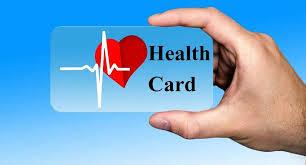Chronic pain is an often invisible burden that affects millions of people worldwide. It can dominate your life, leading to physical limitations, emotional distress, and a diminished sense of purpose. However, reclaiming your life from chronic pain is possible by setting meaningful goals and rediscovering purpose. This process involves a combination of practical strategies and emotional resilience, which can help you regain control over your life and find fulfillment despite the challenges.
Understanding Chronic Pain
Chronic pain is defined as pain lasting longer than three months, often persisting beyond the expected period of healing. Unlike acute pain, which serves as a warning sign for potential harm, chronic pain can become a condition in itself, affecting various aspects of life, including mobility, mental health, and overall quality of life.
The experience of chronic pain is subjective and can vary greatly from person to person. It may stem from conditions like arthritis, fibromyalgia, or nerve damage, and it often leads to a cascade of secondary issues such as depression, anxiety, and social isolation. Recognizing that chronic pain is a multifaceted experience is crucial in addressing it effectively.
The Impact of Chronic Pain on Life
Chronic pain can create a sense of helplessness and frustration. Daily activities become challenging, and hobbies or interests may seem out of reach. Relationships might suffer due to the strain of pain on both physical and emotional well-being. Moreover, chronic pain often leads to a cycle of negative thoughts and behaviors, where the pain can overshadow any positive aspects of life.
In this context, setting goals and finding purpose may seem daunting. Yet, these actions can be powerful tools in shifting your focus from pain to potential. The journey towards reclaiming your life involves understanding how to set achievable goals and finding meaning in your experiences.
Setting Goals in the Face of Chronic Pain
1. Start Small and Build Gradually
Setting realistic and attainable goals is vital when Pain Management. Begin with small, achievable objectives that align with your current capabilities. For example, if you’re struggling with mobility, a goal could be to take short, gentle walks or engage in stretching exercises for a few minutes each day. Gradually increase the intensity and duration as your comfort level improves.
2. Focus on What You Can Control
Chronic pain often involves numerous variables beyond your control. Instead of fixating on what you can’t change, focus on aspects of your life that you can influence. This might include improving your sleep hygiene, learning relaxation techniques, or adopting a healthier diet. Setting goals around these controllable factors can provide a sense of accomplishment and empowerment.
3. Incorporate Pain Management Techniques
Setting goals related to pain management can be highly beneficial. This may involve incorporating physical therapy exercises, trying mindfulness or meditation practices, or exploring alternative therapies like acupuncture. Regularly assessing and adjusting these techniques based on their effectiveness can help you manage pain more effectively and improve your overall well-being.
4. Embrace Flexibility
Chronic pain can be unpredictable, and rigid goals may lead to frustration if they cannot be met. Embrace a flexible approach by setting short-term goals with the understanding that they may need adjustment based on your daily condition. This flexibility can help maintain motivation and prevent feelings of failure when pain levels fluctuate.
Finding Purpose Amidst Chronic Pain
1. Redefine Your Sense of Purpose
Finding purpose is about identifying what brings you joy and fulfillment despite the limitations imposed by chronic pain. This might involve exploring new hobbies or interests that accommodate your physical condition. Activities such as painting, writing, or listening to audiobooks can provide a sense of accomplishment and purpose without exacerbating your pain.
2. Connect with Others
Building and maintaining meaningful relationships can provide significant emotional support. Engaging in social activities, even if they need to be adapted to your abilities, can help counteract feelings of isolation and provide a sense of belonging. Consider joining support groups where you can share experiences and learn from others facing similar challenges.
3. Contribute to Something Greater
Volunteering or contributing to causes that matter to you can foster a sense of purpose and fulfillment. Even if your physical capacity is limited, there are numerous ways to make a difference, such as advocating for awareness about chronic pain, participating in virtual events, or offering support through online communities.
4. Celebrate Small Victories
Acknowledging and celebrating small achievements is crucial in maintaining motivation and a positive outlook. Recognize your efforts and progress, no matter how minor they may seem. Celebrating these victories helps build confidence and reinforces the belief that you are moving forward, despite the obstacles posed by Managing chronic pain.
Embracing a Holistic Approach
Reclaiming your life from chronic pain involves a holistic approach that addresses both physical and emotional aspects. Integrating goal-setting strategies with a search for purpose can help create a more balanced and fulfilling life. Engaging in self-care, seeking professional support, and staying connected with others are all important components of this journey.
Conclusion
The process of reclaiming your life is ongoing and may require adjustments along the way. Be patient with yourself and remain open to exploring new paths and opportunities. By setting meaningful goals and finding purpose, you can navigate the complexities of chronic pain with resilience and hope, ultimately leading to a more empowered and enriched life.






